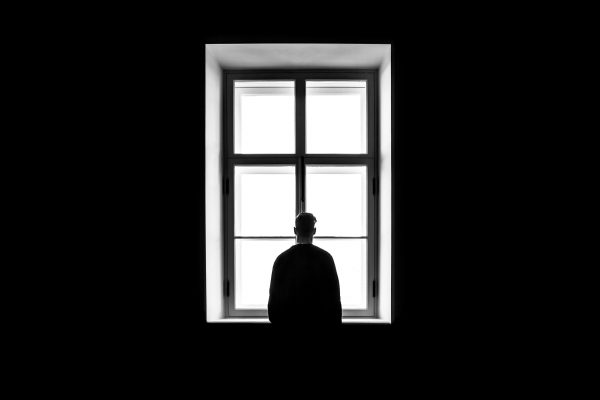The problem is dual; a lack of awareness around mental health issues, and an over-awareness of the supernatural edicts of Islam.
The problem is dual; a lack of awareness around mental health issues, and an over-awareness of the supernatural edicts of Islam.
Hallucinations, delusions, emotional withdrawal, disorganised speech; these are but a few of the symptoms of schizophrenia. A friend told me that they had these symptoms around 6 years ago and in absolute conviction, I told them that they were being troubled by a jinn – the supernatural beings, described as being made of smokeless fire in the Qur’ān. Years later, I would discover how very wrong I was. My friend was diagnosed with schizophrenia and I was part of a considerable problem within segments of the Muslim community. The problem is dual; a lack of awareness around mental health issues, and an over-awareness of the supernatural edicts of Islam.
It isn’t particularly difficult identifying the cause of the first half of the problem – the British Muslim community is characterised by its roots from developing countries. When our predecessors migrated to Britain, those not fortunate enough to obtain an education brought with them opinions in which supernatural causes were considered before material causes, that is if material causes were considered at all.
Lack of understanding of mental illness
When such opinions were combined with a lack of understanding around mental illness, a person suffering from symptoms such as hallucinations which would first be referred to supernatural remedies. This would mean that those who were affected by mental illness rather than a legitimate supernatural affliction would not receive an appropriate medical solution. Instead, they may receive an amulet and a list of prayers rather than, say, Cognitive Behavioural Therapy, commonly referred to as CBT. This had led to an unfortunate scenario in which many people who have a mental illness are simply not receiving the help that they deserve.
This problem has a softer manifestation; very often ‘solutions’ to mental health issues are purported in incredibly simplistic, and often wildly wrong terms. The most common one is probably that depression can be cured if one is grateful to God. Rather than viewing depression as a chemical imbalance (namely serotonin), it is instead articulated as a spiritual problem. This is incredibly unhelpful for those locked in bitter internal struggles against depression, not only do they find themselves beleaguered by the crevices and recesses of their mind, they are also essentially blamed for their own illness.
This isn’t something to be taken lightly. People who experience depression describe it as a mental prison of sorts. You know what is beyond the bars that confine you; you know of the vibrancy of the world beyond your shackles and yet you cannot reach it. These bars and shackles are not made of iron, rather they are made of crippling sadness, blistering rage, and nothingness. Depression brings with it a debilitating absence of feeling; happiness, hope and joy are lost to a null space. What lies beyond these mental bars are your dreams, self-esteem, happiness – all cruelly ripped away and unreachable. All we have to do is just watch as time moves on, while we age and rot. To then leap upon people who face such a severe internal conflict with no sympathy or compassion, but chastisement, is a very serious matter indeed.
Light at the end of the tunnel
That being said, there certainly are strokes of optimism. Mental health is generally being understood better, not just by the Muslim community, but by the wider society. There is far less stigma attached to it, and Islamic counselling has also emerged, with capable Muslims training as qualified counsellors and psychiatrists who combine the fulfilling teachings of Islam with a robust medical process. Religion is a known buff against mental illness, and a major factor in reducing the risk of suicide in an individual. Using Islam as a buoy for recovery and not an obstacle is, therefore, something that is not only possible but desirable.
The Muslim community therefore needs to give considerable attention to cultivating awareness of mental health. As time passes, standards of education among Muslims will also improve, which will help solve the problem. The fixation with the supernatural (jinn, black magic etc) is somewhat understandable, given how interesting and theatrical it can be. A good jinn story, no matter how absurd it sounds, is always entertaining to hear. Perhaps the solution here is, as with practically every problem that the Muslim community faces, to return to the Qur’ān, understand the balance of issues that are discussed in it, and how it constructs a coherent mind with which to encompass this world. So although we have a problem, we do know the solution, if at least vaguely. There is a light at the end of the tunnel; the blackness of ignorance is slowly being bested the brilliance of knowledge.
Tie the camel and pray to God
There is an undertone to this article which I would like to address, lest strawmen arise; we’ve grappled with the concepts of spiritual and medicinal cures. What should be said outright is that there is no healing except by Allāh’s will. All healing is done by Him. This is a truism. As regards to the spiritual-medical dichotomy, I should be very clear that I do not regard the spiritual/supernatural cures as invalid or false. They have their place in doctrine and can very much be legitimate. Additionally, the Qur’ān references itself as a source of healing, and narrations from the life of the Prophet ﷺ also affirm curative properties of the Qur’ān. It is never a problem to seek healing by reciting the Qur’ān unless medical treatment isn’t undertaken. They are two sources of healing given to us by God, and we should use them both as part of an effort to help our own situation.
We see this in the life of the Prophet ﷺ himself. Ibn Qayyim points out in his book on the medicine of the Prophet that the Prophet would use a combination of both natural medicine and spiritual healing. Clearly then, seeking medical cures is not contradictory to spiritual cures. Indeed, what comes across in this issue is how we trust in Allāh. Part of trusting Allāh is to exhaust our means towards a goal – then leave all to Him. Anas reported that a person asked the Prophet; ‘Should I tie my camel and have trust in Allāh or should I leave her untied and have trust in Allah?’ The Prophet replied ‘tie her and have trust in Allāh’ [Tirmidhi]. It isn’t at all blameworthy to pursue solutions that are within our means.
Based upon this, a reasonable approach to peculiar illnesses and symptoms is to exhaust medical explanations, and couple this with approaching those qualified in spiritual cures such as exorcism. This seems to be the middle way; we’re not being foolhardy by denying the efficacy of medicine, and nor are we neglecting spiritual cures. We take both, hand in hand, understanding that they are both from what Allāh has given us as a blessing and as usual, the solution to a problem is so evident in the Qur’ān and Sunnah. We need only to implement it. An obvious first step is to expand our knowledge of mental health. If we do this, we are much less likely to confuse mental health issues with the supernatural. We further need to read literature provided by mental health charities; make ourselves well aware, and able to support our loved ones should we need to.





